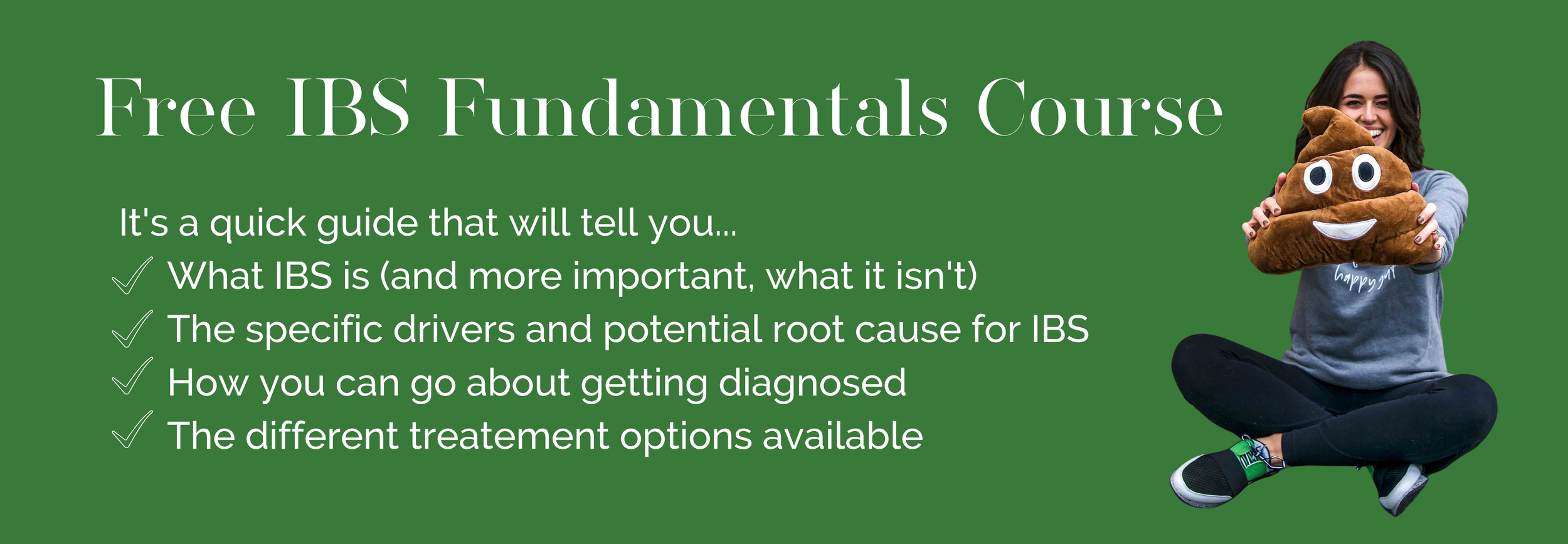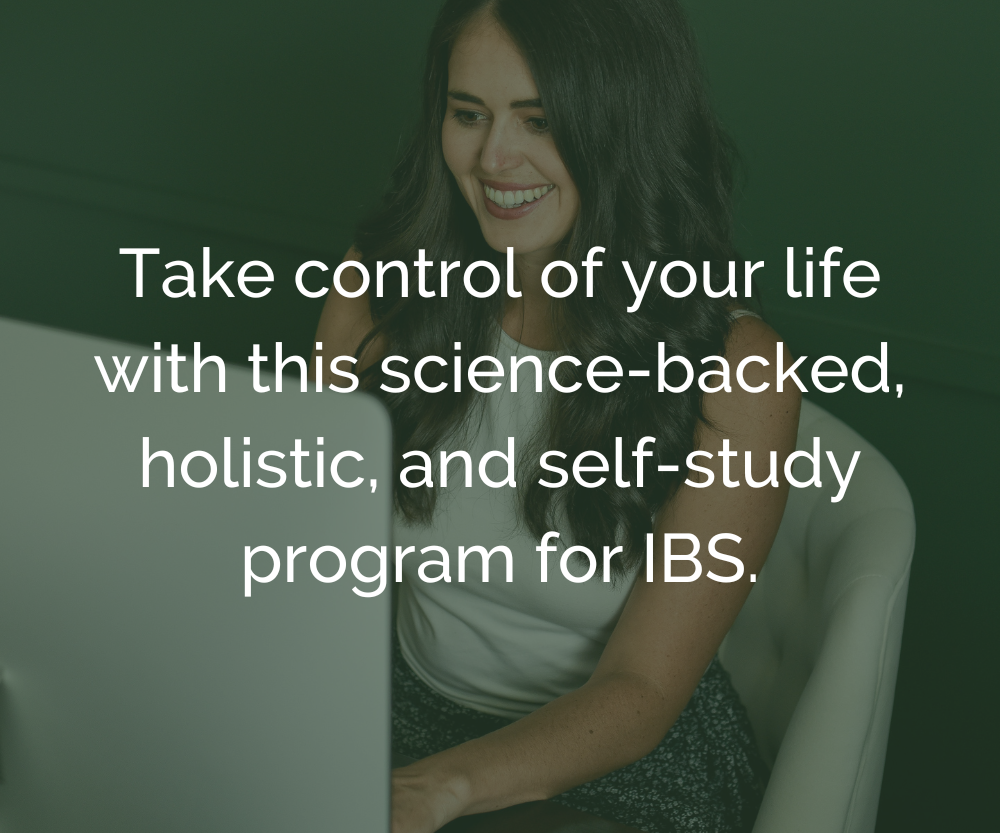10 Ways To Improve Fatigue From IBS
One of the top non-digestive symptoms those with IBS struggle with is fatigue
Fatigue can be described as tiredness, lack of energy, or a state of exhaustion. While fatigue is not a direct lower gastrointestinal (GI) symptom, it is commonly found as a symptom according to quality of life surveys done by large numbers of IBS patients.
The studies show an increase in fatigue with an increase in symptoms, fatigue paired with depression and anxiety, an increase in fatigue with an increase in stress, and worsened severity of fatigue during menstruation.
Why is this link seen, and what’s the cause?
The short answer is there’s no single answer. There’s a lack of research done on fatigue and it’s difficult to measure because it can be described in many different ways. However, there are a few reasons why fatigue could be a result of IBS, including altered gut-brain communication, lifestyle behaviors, diet, and hormonal imbalances.
Gut-Brain Communication
With IBS, we know there is a dysfunction in the gut-brain communication pathway (read more on that here). We know that there is an increased risk for depression and anxiety with IBS, and vice versa. A depressed mood could explain some of the symptoms patients with IBS note as exhaustion or lack of energy. The gut-brain connection may also play a role in the hormonal connection, which is highlighted below.
Lifestyle Behaviors
In practice, when clients complain of fatigue, we can typically identify big triggers in their lifestyle behaviors. The reason this is so common is that many lifestyle triggers for fatigue are also triggers for symptoms. This can include poor quality or quantity of sleep, lack of movement or high intensity exercise, and poor use of energy.
When referring to poor use of energy, it can be helpful to take a quick energy assessment. What is filling your mental space? Are you constantly googling about your symptoms, or scrolling social media? Are you consumed with the news or other distractions? These energy-zappers aren’t just seen in those with IBS, but having these in your life on top of other contributors mentioned in this article can increase the fatigue you are experiencing.
What’s your poop personality? Find out here!
Diet
IBS can lead to fear and misunderstanding around food, which can cause a lot of restriction in the diet. This restriction can then lead to fatigue in a few ways:
First, restriction can lead to under-eating, which can leave the body partially malnourished and the lack of energy will present as fatigue and brain fog.
Second, inconsistent patterns of skipping meals and eating large meals (or binging) can mess with the blood sugar curve, which can make you feel like you’re on an energy roller coaster.
Third, restriction of certain foods and groups may lead to nutrient deficiencies, which then cause low mood, fatigue, brain fog, and exhaustion. Nutrients to check for initially when these symptoms worsen include Vitamin D, Vitamin B-12, and Iron.
Hormonal Imbalances
Hormones are communicators in the body and are directly involved in different systems throughout the body. There is a connection between IBS and hormones (read more on that here) so uncontrolled IBS symptoms could be linked with an imbalance in different hormonal systems, including sex hormones, hormones that impact mood, and hormones involved in digestion. These hormonal imbalances can then cause more fatigue, low energy, and mood swings.
Again, there aren’t many studies done on fatigue so we don’t know the exact mechanism for an increase in fatigue with IBS, but we do know it’s there, possibly due to the reasons above.
10 actions you can start taking now to deal with this issue:
Check your blood levels for any micronutrient deficiencies. Many deficiencies, including iron, B12, and Vitamin D, can result in decreased energy levels and feelings of fatigue. You should get this bloodwork done every year and talk with your doctor about any changes in your energy levels.
Improve your sleep routine. Your sleep wake cycle influences your circadian rhythm, which is the body’s internal clock that impacts energy levels, hormone balance, and digestion. Go to bed and wake up at consistent times, ensuring that you get at least 7-9 hours of sleep each night.
Support your mental health. Stress can lead to fatigue and IBS symptoms, so it’s important to find ways to lower stress and support your overall mental health. This can be done through a variety of self care practices, as well as with a mental health professional. Cognitive behavioral therapy (CBT) is used by many mental health professionals to directly target IBS symptoms and fatigue.
Rest your brain with meditation. The brain isn’t mean to be full of thoughts, worries, to do lists, and the other stressors you carry each day. The practice of meditation allows your brain to be still, which can support your hormone, focus, energy levels, and IBS symptoms.
Make sure you are eating enough. If you are under nourished, your body won’t have the calories needed for optimal energy. If you find that you are limiting carbohydrates or overall calories due to your symptoms, work with a dietitian to make sure your body is supported and your IBS symptoms are under control.
Balance your meals for optimal energy. This goes with eating enough, but comes down to the flow of energy throughout the day. Pair your complex carbohydrates with fiber-rich vegetables, quality protein, and healthy fats. This will support your blood sugars and help you focus as the day goes on.
Focus on healthy fats. Healthy fats, especially Omega-3s, support the brain and hormone balance. You can include Omega-3s via a supplement or with fatty fish. You can get other healthy fats from nuts, seeds, olives and olive oil, avocado and avocado oil, and coconut.
Move your body often. Movement increases blood flow, reduces stress, and helps improve energy levels. This doesn’t mean you put in a few hours each week at the gym, but instead that you move your body every day in ways you enjoy. Wake your body up with a yoga flow, go for a walk on your lunch break, and hit the gym after work to build muscle. Do what you enjoy and what’s possible within your day.
Manage your time. If your schedule is always full or you find that you are constantly working from a place of stress and rush, you will likely experience more fatigue and mental exhaustion. Take time to actually plan your weeks and schedule time for the activities above, self care, and rest. Improve your overall energy levels by planning your tasks out to avoid constantly switching your focus between different tasks.
Work with a dietitian to manage your IBS symptoms and improve microbiome health. Lowering symptoms can help decrease the stress of symptoms, as well as support overall digestion and nutrient absorption. Improving the microbiome improves hormone balance and mental health. Our team of dietitians cover this in our 1:1 Program and MASTER Method Membership.
I hope this article was helpful to make more sense out of why fatigue is common for those with IBS and I hope these actions help you see improvement in this area! Leave a comment if this was helpful for you!
Sources:
https://www.ncbi.nlm.nih.gov/pubmed/30254230
https://www.asian-nursingresearch.com/article/S1976-1317(16)00012-8/fulltext
https://www.ncbi.nlm.nih.gov/pubmed/30644587
Are you frustrated with your IBS symptoms? Do you desire to be confident in your food choices? Do you want to have a healthier relationship with your body and diet? Are you ready to take control of your IBS?



